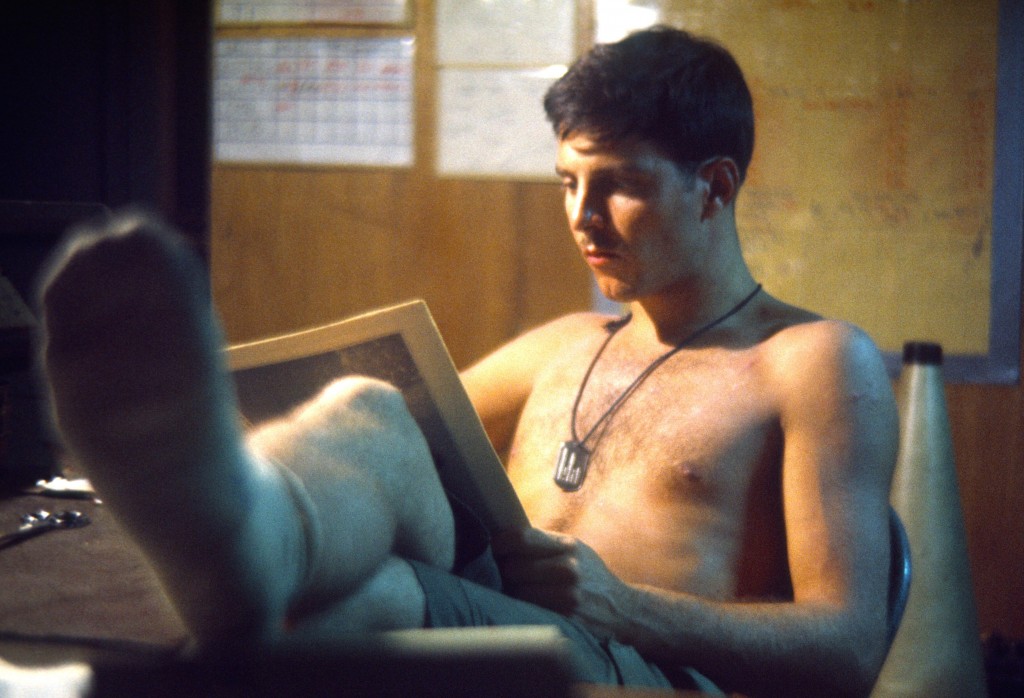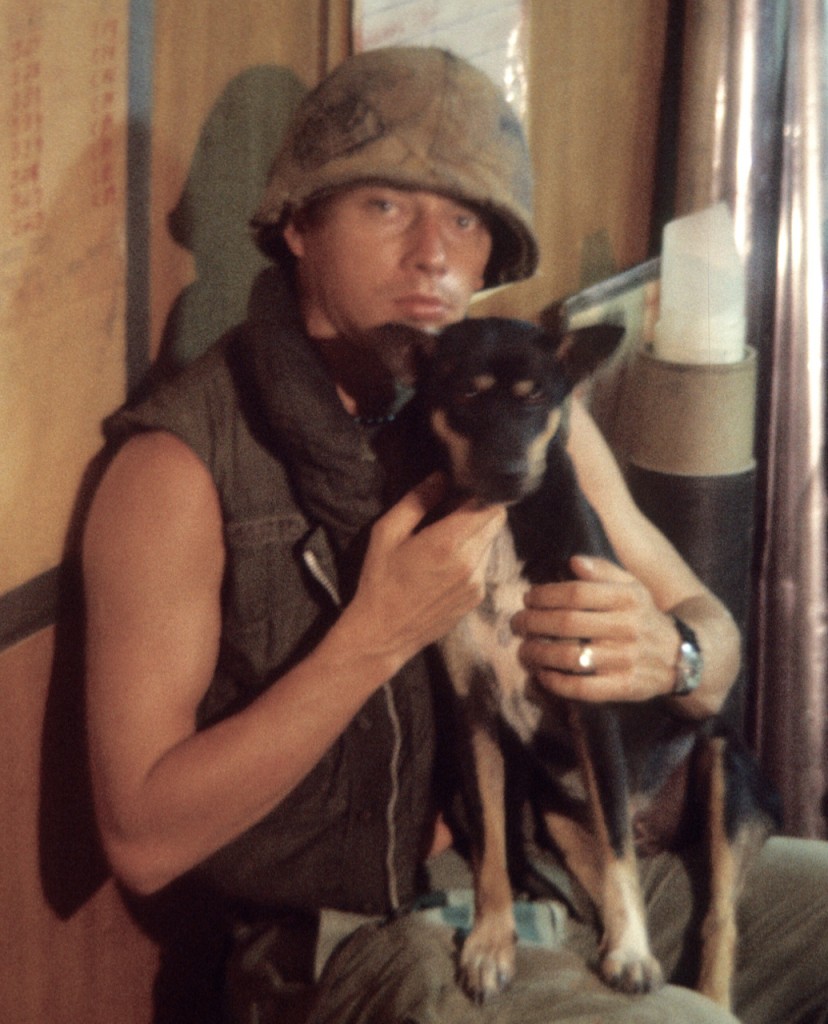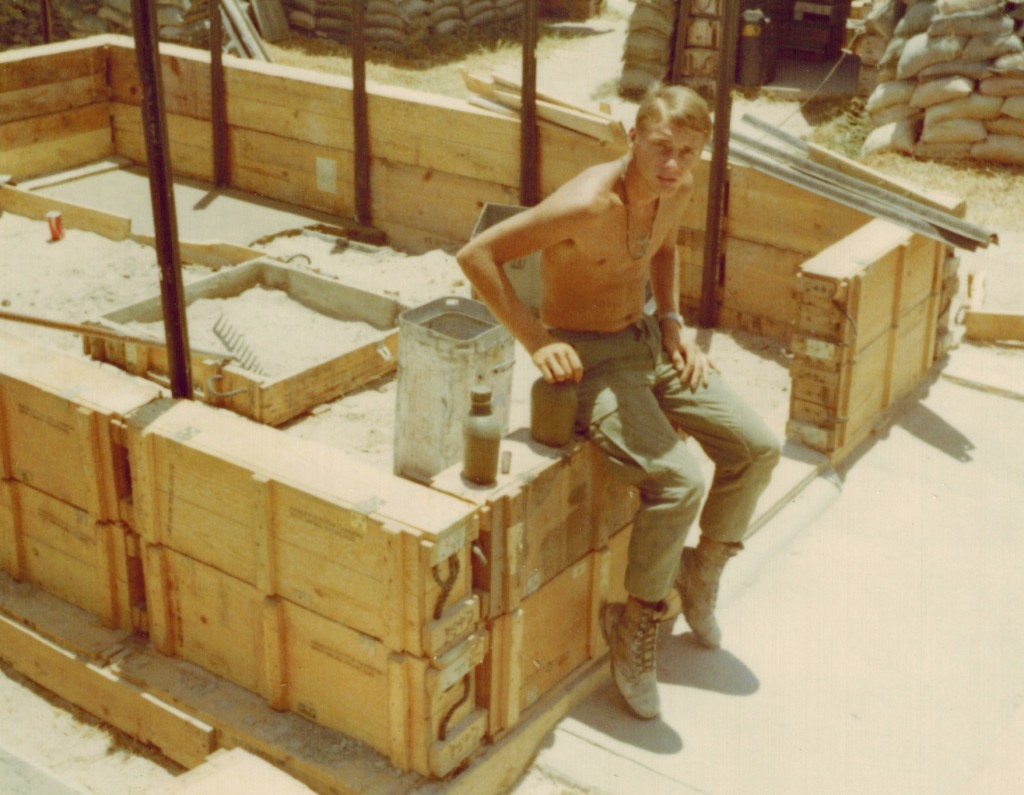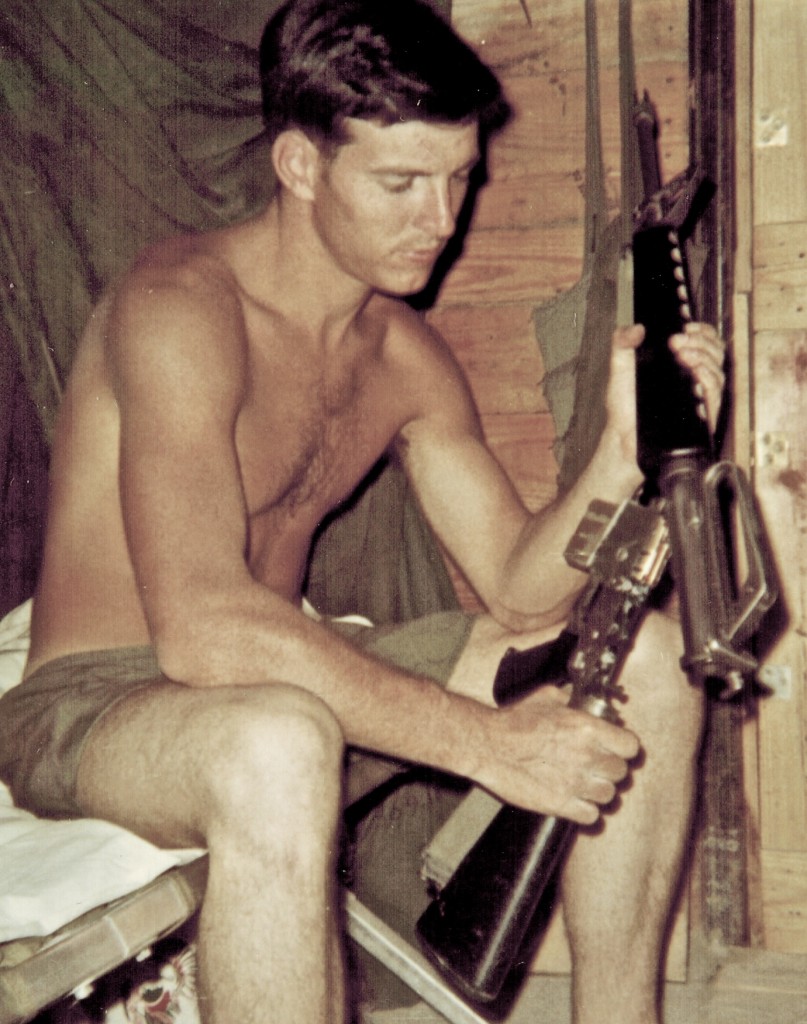Into The Army
I was going to school majoring in Engineering at what is now the Missouri Science and Technology University in Rolla; it was the University of Missouri at Rolla in those days (and a highly respected engineering program). I was in the ROTC program, but not by choice. In those days, in 1964 when I started at Rolla, if you were an able bodied male student you had to take ROTC. It was mandatory for your freshman and sophomore years. It stems back to the Land Grant College Act from World War One. (The original Land-Grant legislation passed in 1862, with various extensions over the years until its final expansion in 1914.) The federal government said, Hey states, here’s property. You can go out and build a college, agricultural or technology, and oh by the way in payback it’s mandatory that all of your freshmen and sophomore able bodied male students take ROTC. If their grades are good enough at the end of their sophomore year, and they want to apply for the advanced ROTC, that’s a separate personnel action and we’ll consider it.
My first summer home my uncle had a surveying company in Creve Coeur and I went to work for him. I was not able to save up enough money to go back to Rolla in the Fall so I kept working and went to the University of Missouri in St. Louis, and then went back to Rolla in January. That Fall I went on probation because I was having too much fun playing pinochle every night instead of studying. When I went on scholastic probation the draft reclassified me to 1-A (top of the list). To keep from getting drafted I decided to enlist, because that gave you some choices.
Enlisting to avoid the draft was a familiar story during Vietnam, weakening the statistic that only 25% of those who served in Vietnam were drafted, and giving the lie to the idea that most of the guys in Vietnam wanted to be there.
When you enlisted you got three choices for which branch of the Army you wanted, one of which had to be a combat arm. For their other two choices guys would usually pick things like Intelligence or Supply or Personnel, places where you didn’t get shot at. Still everybody at that time all around me were getting infantry, and that was the last thing I wanted. So when it came down to making my choices I put down three combat arms instead of just one. Corp of Engineers at Ft. Belvoir was my first choice. Armor at Ft. Knox was my second because a couple college buddies went there, and Artillery at Ft. Sill was my third. So now the Army could always come back and say we gave you what you asked for.
When I was home for Thanksgiving I went down to the Mart building in downtown St. Louis and took my induction physical the day after Thanksgiving. Classes back at the university didn’t start until the Monday afternoon following a holiday weekend, so I went by my draft board Monday morning and said, “I took my physical last Friday and I’m 1-A, when are you going to call me?”
They said, “Probably in February,” and they were good to their word.
Advice To Last a Lifetime
I married Mary Beth, my high school sweetheart on February 4th and two weeks later left for basic training at Fort Leonard Wood. My dad dropped me off for my induction, which happened to be his birthday, the 20th of February. We’re sitting out in the car and it’s six o’clock in the morning in downtown St. Louis and it’s colder than hell. My dad was in the Navy in WWII and he says, “Let me give you some advice before you go in there from an old Navy guy. I know you want to be an officer. So let me tell you this. We used to call them chiefs, in the Army you call ‘em sergeants, and let me tell you right now, even if you’re a lieutenant, do what the sergeant tells you to do. Second, don’t ever volunteer for anything. Third, there’s a war going on right now and you’re probably going to end up over there. So let me warn you now, keep your ass down so you don’t get it shot off.”
In ’94 when my dad died, my brother-in-law who was a minister was going to conduct the memorial service. He called me up a couple days beforehand and said, “Tell me some things your dad told you that had a long lasting impact on your life.” I told him this story word for word and when we got to that third piece of advice he said, “Well, we probably ought to change that last one to ‘keep your head down.’” To this day I cite those three things he said to me as the most sage advice my father ever gave me, especially given that I ended up staying in the Army for twenty years.
A Winding Road To Artillery
When I got to Ft. Leonard Wood for basic training I applied for Officer Candidate School. I had been majoring in engineering at Rolla, so I asked for Combat Engineering again. After I finished basic at Leonard Wood I went to Ft. Lewis, Washington Advanced Individual Training in mortars. If all went well I’d go to Ft. Belvoir right out of AIT.
Our AIT company at Lewis was different. We only had sixty-three guys in the company, instead of the two hundred that you normally had. Half of us were wanting to go to OCS, and the other half were National Guard and Enlisted Reserve from Alaska, and they were mostly Eskimos. So we ended up with one platoon of guys who were OCS oriented, and the other platoon was the Guard and Reserve guys. Every morning the drill sergeants would flip coins to see who would take us to training and who would stay behind and shoot pool in the dayroom.
The funniest thing, when we would go to the rifle range the squatting position was one of the hardest firing positions to maintain. Well these Eskimos used to go out on the ice flows and wait all day for a shot at a polar bear. These guys could go out there and squat forever. When the firing range instructor announced the next firing position would be the squatting position, for them is was, Okay, bang, bang, bang.
I should have gone straight to OCS after Ft. Lewis, but my OCS application got lost and I had to apply all over again. And I had to take an OCS physical. When I graduated from AIT I still didn’t have my OCS assignment, so I talked the First Sergeant into letting me take a two week leave back in St. Louis. I told him I had been married only two weeks before leaving for basic, and I think that helped. I got back to Lewis on a Friday afternoon. The First Sergeant called me into the orderly room and said, “You got your OCS orders. You’re going to Ft. Sill for artillery OCS and you’re leaving Tuesday.” So much for getting my first choice.
I cleared post the next morning: running around for paperwork to finance, personnel, shot records, etc. Those were the days of Westmoreland when everybody had to work five and a half days, making Saturday morning a duty day. Later on when I got to be a captain and battery commander of a HAWK battery (Homing All the Way Killer) in Germany, guys would come in and say, “Hey captain, I need two weeks to clear post.”
“Bullshit. I know how to clear post in half a day, but I’ll be a good guy though and give you a whole day.”



